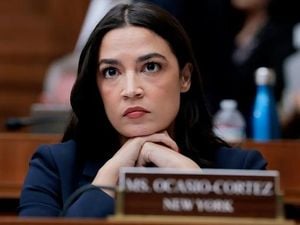The United Kingdom’s political landscape is undergoing a seismic shift as the Green Party faces a pivotal leadership contest just as a new left-wing party, co-led by Jeremy Corbyn and Zarah Sultana, surges onto the scene. With the Green Party’s leadership result set for September 2, 2025, and the Corbyn-Sultana project already boasting over 800,000 sign-ups, the future of progressive politics in Britain hangs in the balance.
At the heart of the Green Party’s crossroads is a debate not about policy, but about style and strategy. Zack Polanski, the party’s deputy leader and a former actor, has injected unprecedented energy into the leadership race. In a campaign video that echoes the populist aesthetics of Reform UK, Polanski stands on a windswept beach and delivers a scathing critique of the political obsession with small boats crossing the Channel. "Small boats," he declares, "are an obsession that has gripped the country," blaming them for a "crumbling" NHS and "obscene" rents, while the real culprits, he argues, are "the super-rich and their yachts." Looking straight into the camera, he doesn’t mince words: "Well, I call bullshit." According to BBC, Polanski’s approach, which he dubs "eco-populism," is about being "bolder" and more explicitly anti-elite, connecting with the anger many voters feel about social and economic issues as well as environmental ones.
Polanski’s pitch is clear: the Greens, he says, have been "too nice" and risk appearing "out of touch." He wants the party to step up, not by shouting louder, but by being "more effective"—by not shying away from challenging entrenched wealth and power. "Far too often in the past we've equivocated or we've been too worried to challenge wealth and power in as blunt a way as possible," he argues.
But not everyone in the party agrees with this radical shift. Current co-leaders Adrian Ramsay and newly-elected MP Ellie Chowns, running on a joint ticket, favor a less combative style that they believe has already brought the party record success. In the summer 2024 General Election, the Greens jumped from one to four seats in Parliament and, together with their Scottish and Northern Irish counterparts, captured 6.7% of the national vote. Ramsay and Chowns argue that broad appeal and a reputation for credibility are key. As Chowns puts it, "It's really the difference between populism and popularity. What they need to know is that if they put their vote in the Green box on the ballot paper that's got a really, really good chance of electing somebody."
The party’s recent momentum is undeniable. According to BBC, membership has surged in recent months, and since July 4, 2024, the Greens have not only held 12 council seats in by-elections but have also won another 14, mostly at Labour’s expense, while losing four to the Conservatives. Baroness Bennett, who led the party between 2012 and 2016, says there is "a level of excitement and interest around this leadership election more than I've ever seen before by a very large scale."
Yet, the Greens’ internal debate is shadowed by external pressures. Most notably, the imminent launch of a new party by Jeremy Corbyn and Zarah Sultana threatens to upend the left-wing vote. On July 3, 2025, Sultana announced her departure from Labour to co-lead the new formation. By early August, the party had racked up more than 800,000 sign-ups and polled above 10% in several surveys, despite not even having an official name. According to Middle East Eye, Sultana has made a point of distinguishing the new project from Corbyn’s Labour leadership, emphasizing a more openly anti-establishment and anti-Zionist stance. On August 17, she declared on social media, "I say it loudly and proudly: I’m an anti-Zionist. Print that." She’s also brushed off establishment criticism, stating that "the smears won’t work this time."
Sultana’s vision is for a party that eschews traditional electoralism in favor of a broader movement. In an interview with New Left Review, she argued that the party must build on the "energy, mass appeal and bold policy platform" of Corbynism, while learning from its mistakes. She criticized previous efforts for being "far too conciliatory" when under attack and for failing to channel mass membership into labor and tenants’ movements. Sultana insists that the new party’s structure must be "unitary" and not just a loose federation, aiming for a "powerful, united bloc" that breaks "the conventions of British politics."
The threat to the Greens is real. Research conducted by More in Common in June 2025 suggested that a Corbyn-led party could cut the Greens’ nationwide vote share from 9% to 5%. Polanski, however, has expressed a willingness to cooperate with the Corbyn-Sultana project, believing that the Greens’ established status gives them an edge. Ramsay, on the other hand, warns that the new party could "blow Polanski's pitch out of the water."
Meanwhile, the Greens’ own challenges remain daunting. Despite their electoral gains, their fundraising lags far behind rivals: the party raised just £160,000 during the election period, compared to over £1.6 million for both Reform UK and the Liberal Democrats, and a staggering £9.5 million by Labour. The Greens also face structural hurdles: party policy is set by the membership, not the leader, and both leadership camps agree on most policy issues. Polanski has gone further than current party policy by suggesting the UK should leave NATO, but such differences are few and far between.
Analysts are divided on the best path forward. Matt Zarb-Cousin, a former Jeremy Corbyn spokesperson who joined the Greens in 2022, argues that it’s "inexcusable" the party hasn’t capitalized more on left-wing discontent with Labour. He believes the Greens need to highlight economic issues like the cost of living and inequality, and frame their arguments more directly: "Who are the enemies? Whose side are you on?" Former Green councillor Rupert Read, however, cautions against an overtly left-wing identity, warning it could cap the party’s support.
Prof Neil Carter of the University of York notes that the Greens have traditionally succeeded with "metropolitan, liberal-minded, young, professionals," while Ramsay and Chowns’ approach could appeal to a broader spectrum. Luke Tryl from More in Common suggests that Polanski’s "eco-populism" might help the party get noticed, but warns it could limit their parliamentary gains unless they moderate to become a "genuine mass movement party with potential for power."
For now, both the Green Party and the new Corbyn-Sultana formation are seeking to capitalize on the widespread disillusionment with the status quo. As Sultana put it in her interview, "The goal is to change politics forever." Whether that transformation will be led by a bolder, angrier Green Party, or by a brand-new left-wing force, remains the question on everyone’s mind as Britain’s political future hangs in the balance.




